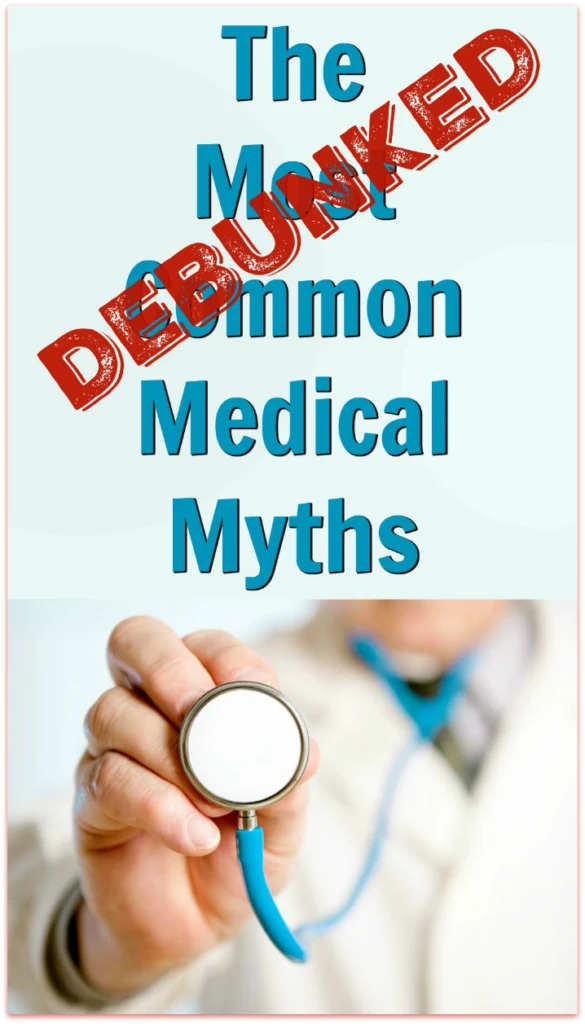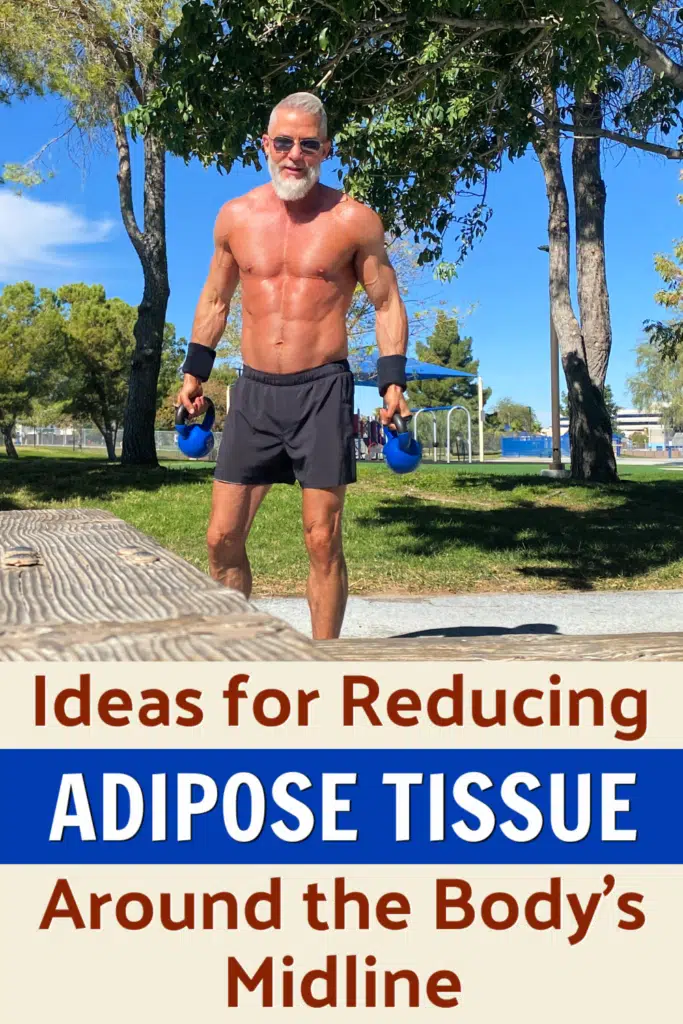Here’s what actually works to help the human body lose belly bulge – plus essential information that debunks some common health myths.
Do you have belly bulge that you want to lose? The video lower within this article will help you get started.
Different Kinds of Fat: Subcutaneous VS Visceral
Some fat cells that create belly bulge sit directly under the skin. Doctors call this subcutaneous fat.
Scientists believe subcutaneous fat can be less hazardous to health than visceral fat, which pads the vital organs deeper within the body.
Visceral fat can provoke inflammatory pathways that signal molecules to interfere with the body’s normal hormonal functions – potentially promoting disease outcomes. This type of intra-abdominal adipose tissue can become toxic as it accumulates.
Key lifestyle choices – done habitually – decrease visceral fat deposits and reduce the risk of heart problems, stroke, cancer, and diabetes.
Upgrading these habits might be easier than you think.
The Habits That Make Belly Bulge Go Away
Strategic exercise, smart nutrition (with a calorie deficit), and deep sleep are the most effective ways to reduce belly bulge.
An ideal weekly exercise regimen involves mobility – such as yoga, stretching, pilates, and foam-rolling.
Also important is cardio – including sprinting – strength training (lifting weights and pulling resistance bands), and cross-functional fitness that combines all three.
At the very least, one should go for a long daily walk.

A smart weekly menu would consist of food choices that are anti-inflammatory to the unique chemistry of your own body.
This varies person-to-person, but generally, anti-inflammatory means a diet consisting of a high intake of vegetables (both raw and cooked) and a low intake of sugar, gluten/grains, dairy, and processed foods.
The number of calories you ingest each day should match (or be less than) what your body has burned.
Removing alcohol consumption remains among the most effective ways to lessen fat deposits around the body’s midline; ethanol not only dumps empty calories into the body but, more specifically, it challenges the liver in a way that is not helpful to the metabolic process.
Finally, a healthy body requires adequate hydration and deep sleep each night to keep stress hormones low and your metabolism finely tuned.
After those habits have been implemented, specific supplements might be taken to speed up the fat-shrinking process further.
Extra Help in the Fight Against Belly Bulge
Do you already eat right regularly, sleep deeply, and workout daily – yet that stubborn belly bulge remains?
Nutritional supplements might also help in your quest to create a leaner waistline.
Each supplement addresses belly bulge from a unique angle:
- 7-Keto revs up your metabolism
- forskolin decreases the size of fat cells
- caraway seeds combat bloating
- and Relora regulates the stress hormone cortisol.
These four are not meant to be combined to form some sort of super supplement. You should determine the cause that is most likely at the root of your belly bulge.
7-Keto for Your Waistline
7-Keto is a natural hormone bi-product that stimulates the thyroid gland and helps convert fat to energy. We make less of it starting in our 30s. The great thing about 7-Keto is that it helps us restore a high metabolism and then freezes it there. 200 mg/day (100 mg am, 100 mg pm) was suggested.
Forskolin to Flatten Your Tummy
Forskolin is found in the root of an herbal plant within the mint family. It acts like a furnace in your cells that melts fat away. 125 mg/day was suggested.

Caraway Seeds to Stay Lean
Caraway Seeds fight bloating. They are rich in vitamins and minerals and a natural digestive aid. Essentially, they inhibit the bad bacteria that convert food into gas. They also relax the intestinal tract. Eating a handful after every other meal was suggested.
Relora to Improve Metabolism
Relora helps to regulate Cortisol – a stress hormone that, when present in excess, is one of the top reasons people gain weight. Taking 250 mg, 3x/day (i.e., at every meal) of Relora was suggested.
what if you could signal the same pleasure sensation – only, without the carbs? Well, that’s exactly what saffron extract does.”
Using Green Smoothies to Reduce Belly Bulge
My life experience has demonstrated that green smoothies – perhaps even more than supplements – can help trim up the body’s midsection, sometimes in dramatic ways.
Is a Natural Appetite Suppressant Right for You?
Now, to be clear, these supplements are not replacements for a healthy lifestyle. They are intended to give you a little extra push while being used in conjunction with intelligent diet and exercise protocols. However, there is a little something else you can add to the mix.
The philosophy behind using saffron extract as an appetite suppressant is that emotional eating causes us to crave carbs. The carbs stimulate a pleasant sensation that provides us with some emotional relief.

The problem here is that the carbs also pack on the pounds.
So, what if you could signal the same pleasure sensation – only without the carbs? Well, that’s precisely what saffron extract does.
Two women took the extract for three days in a small, informal research experiment. At the end of the three days, one woman lost 3 pounds, and the other lost 5.
At your next yearly physical, ask your doctor what lifestyle habits and nutritional supplements might be best to help you create stamina and a lean, strong, and healthy body. And, to save time, arrive at your annual physical exam knowing specific key facts.
The Most Common Belly Bulge Medical Myths: DEBUNKED
There are several popular medical myths circulating among the general public today.
Unverified facts have a way of spreading.
Research studies are particularly easy to misinterpret, even by those people with a sincere interest in medicine and science.
Often, such stories circulate because they seem like they should be accurate, not always because they are factual.
Knowing these medical myths beforehand will help you at your next yearly physical exam – when you work with your medical doctor to form the self-care strategies that will most benefit your health. In particular, there is a lot of misinformation about belly bulge and how to safely and realistically lose fat around the midsection.

In his compelling new book Unconventional Medicine, functional-medicine advocate Chris Kresser clarifies the most significant challenge our culture faces today – chronic disease – and sets out to separate fact from fiction.
Functional medicine is a style of medical treatment that first addresses the “why?” behind symptoms.
For example, if a person has blood work completed in the lab that reveals high cholesterol, the functional medicine practitioner would first discover why the cholesterol is high before prescribing prescription drugs to lessen symptoms.

While genetics might be a factor in high cholesterol, the more significant reason is perhaps attributable to lifestyle habits or other reasons such as poor thyroid function, infections, or intestinal permeability.
“Groupthink is a problem in medicine,” says Kresser. “We tend to get stuck on the status quo, even though a core principle of science is: uncertainty. We have to be willing to challenge our most cherished views.”
Below are a few of the medical myths currently rampant in our culture.
For more information regarding these myths – including research studies – see the Additional Sources section toward the end of this article.
Please consult with your doctor before making any significant changes to how you eat or how you move.
FALSE: Every Belly Bulge Problem Can Be Solved by Medication Alone
What is a human body trying to communicate to its owner when it creates a symptom?
Taking a synthetic pill to mask a symptom can sometimes be problematic, especially if taking the pill prevents a person from discovering why the symptom is present in the first place.
Not every problem can be solved by medication alone.

FALSE: Cholesterol Intake from Food Always Directly Correlates to Serum Cholesterol and Belly Bulge
Dietary Guidelines for Americans published by the US government no longer include suggested restrictions on cholesterol intake, as of 2016.
There is no longer a reason for everyone to aggressively limit cholesterol intake from their daily menu.
Cholesterol intake from food does not always correlate directly to serum cholesterol.
FALSE: Medical Doctors Are Always Impartial
Doctors are people, too.
Conflicts-of-Interest abound in modern medicine.
Lobbyists for the pharmaceutical industries wield significant impact – both in Washington, D.C.,and on the local level.
Though most medical doctors are kind people with good motives, they are human, too – and are influenced unconsciously, just like the rest of us.
FALSE: Every Person Should Severely Restrict Intake of Saturated Fat to Reduce Belly Bulge
Some people possess unique genetic markers that make them particularly sensitive to saturated fat, resulting in elevated cholesterol and weight gain. Many people, however, do not possess these genes.
Increasing intake of healthy fats can benefit some people for various reasons – including blood-sugar stabilization, hormone production, and satiety.
FALSE: Each Specific Symptom Requires the Same Intervention
Doctors and health practitioners with a functional medicine mindset are moving from general blanket recommendations that apply to every single person to more personalized recommendations that depend on genetics, goals, health status, work routine, age, and the unique chemistry of a person’s body.
FALSE: Doctors Hold Back on Purpose
It might seem like doctors don’t care, but most doctors are smart, kind, and interested in being helpful.
No doctor wants to see himself as a shill for drug companies.
Explains Kresser, “Think of everything that has to change to reflect a new understanding. Medical textbooks must be rewritten, and primary care guidelines – it’s just massive. And so the average health provider might not get the new information for years, even decades.”

Primary care physicians are in a tough spot right now. They’re trying to help people, and they’re doing their best, but they might have 2,500 patients on their roster with an average visit time of 8 to 12 minutes – especially if, to get reimbursed from insurance, they have to see a certain number of patients each day.
FALSE: Chronic Inflammation Refers to Swelling Only
The phrase Chronic Inflammation can refer to swelling of specific tissues and joints, but often it means much more – referring to the body’s overall confused immune response.
Though the human body is designed beautifully to handle the occasional irritant, when exposed to a relentless onslaught of irritants day after day, it can become fatigued and start to attack healthy cells, too.
In other words, if a body becomes too tired and overwhelmed to run a complete diagnostic on each cell beforehand, it might try to shoot down a healthy cell if it thinks there’s even a chance it might be harmful. The system becomes less nuanced.
Though there are many factors to the aging process, inflammation is possibly the number-one reason for disease and premature aging. Knowing this beforehand can help you adopt lifestyle habits that help combat inflammation – such as an anti-inflammatory diet, improved sleep patterns, and strategic exercise.
For more strategies on debunking medical myths, reducing belly bulge, and how to navigate modern medicine in a way that proves helpful and healing, pick up Kessler’s Unconventional Medicine through your favorite bookseller.
Additional Sources about Reducing Belly Bulge:
Chris Kessler and the Revolution to Reinvent Healthcare – https://unconventionalmedicinebook.com/
Multiple Drugs in Older Population Can Exacerbate Ailments – https://www.nia.nih.gov/news/dangers-polypharmacy-and-case-deprescribing-older-adults
United States Government Agency Issues Dietary Guidelines – https://health.gov/dietaryguidelines/2015/guidelines/
Sugar Industry Attempted to Blame Dietary Fat as the Culprit – https://www.nytimes.com/2016/09/13/well/eat/how-the-sugar-industry-shifted-blame-to-fat.html
Dietary Cholesterol Necessary for Hormone Production – https://metabolichealing.com/cholesterol-your-body-is-incapable-of-making-hormones-without-it/
Gifts to Doctors from Pharmaceutical Companies Correlate with More Expensive Prescriptions to Patients – https://medicalxpress.com/news/2017-10-pharma-gifts-result-branded-expensive.html
Research Outcomes of Genetic Sensitivity to Saturated Fats – https://athletigen.com/truth-fats-and-genetics/
Anti-Inflammatory Diet Studies – http://thepaleodiet.com/anti-inflammatory-paleo-studies/
Harvard Medical: Mounting Evidence Suggests Inflammation as Common Underlying Cause of Major Degenerative Diseases – https://www.health.harvard.edu/newsletter_article/Inflammation_A_unifying_theory_of_disease

10 Health Protocols that Will Help You Look Better Naked
Thursday 24th of January 2019
[…] Each superfood has a different impact on each body. Listen closely to how your body feels after you try a superfood for the first time, and ask your medical doctor and nutritionist for their guidance. […]
Fresh-Air Workout: Get Fit with Body-Weight Suspension Training that You Can Do Outside
Sunday 1st of July 2018
[…] is an opportunity to flatten your lower abdominal plate – that part of your front waist located below the […]
How to Improve Health and Fitness After Age 50 - Over Fifty and Fit
Sunday 24th of June 2018
[…] health and facilitate healing by addressing all aspects of a person – their physical body, their mental agility, and their life […]
What Supplements Should I Take? - Over Fifty and Fit
Sunday 24th of June 2018
[…] What follows are specific supplement ideas for you to consider and to discuss with your doctor at your next annual physical. […]
10 Food Choices Enhance Your Health without a Strict Diet
Sunday 24th of June 2018
[…] just had my annual physical exam and my medical doctor reports that my bone health is now […]